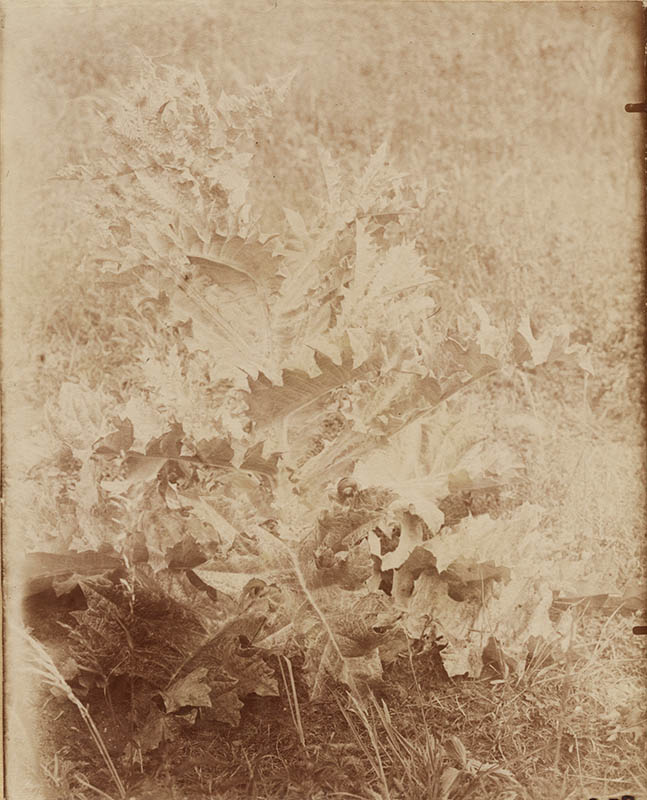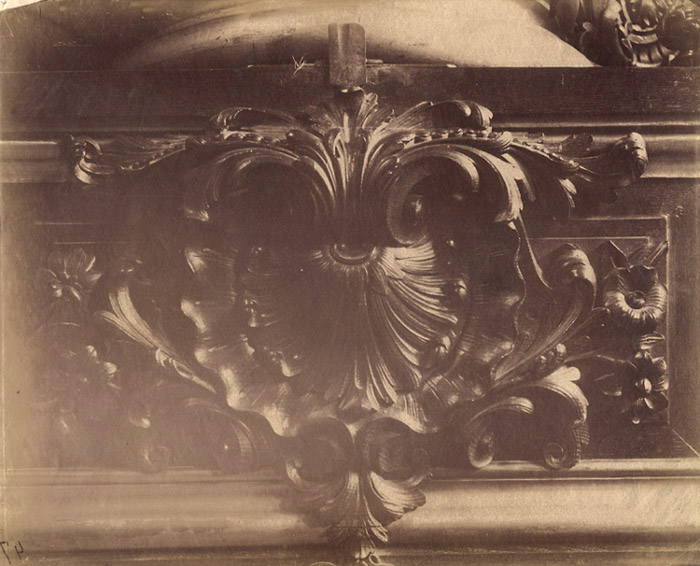
Jean-Eugene-Auguste Atget, Luxembourg Gardens
Atget made 10,000 photographs between 1897 and 1926, most prior to 1914, so that at the end of his career he was able to write in a letter, "this enormous artistic and documentary collection is finished today. I can say that I possess all of Paris."
Jean Eugene August Atget (1857-1927) tried his hand at being a sailor, actor, and painter before devoting himself to his life project: photographing Paris. He did not intend for this to be an artistic endeavour, but rather a commercial enterprise selling picturesque views of the city as "Documents for Artists". Atget approached his subject with such devotion that we could easily say that Paris had seduced the man.
Paris was a modern metropolis, but this was not the Paris Atget photographed. Atget worked in the early morning hours to avoid traffic and people. He wandered the haunted Parisian streets like a ghost in search of some unfulfilled desire. In that magical morning light Atget saw through time. He found on the ground-glass of his view camera the noble remains of a grand culture that lingered on in the architectural style of the elegant Hotels, the picturesque courtyards and royal pleasure grounds of a bygone era. Few photographs show a human figure. His photographs are peopled mostly by Baroque statues, architecture, empty parks and mythical trees. There are no signs of industry, no Eiffel Tower, no lively café scene. In short, he recorded the existence of another Paris that lies just under the veil of modernity.
As World War I approached, Atget moved visually away from the central arrondisements of Paris to the outer edges of the city. Atget made photographs at the ports and fortification wall circling Paris. In this environment we are shown vacant boulevards lined with old majestic trees. We see old bastions and canal houses covered in vines. These are solemn empty places, but they are haunted by a spirit of less disturbing times.
Along the outside of the fortification wall, literally outside of Paris, Atget wound his way down narrow well worn footpaths. 'Fosse' is the word he chose to title most of these images. The term translates to ditch or grave. Here he finds his trees rising up from wild waves of unkept shrubs and prickly brambles. They sway between us and the sun behind them. They shimmer in and out of sight like spectres threatening to either take physical form or disappear forever. In fact, they did disappear. With the onset of the war Paris prepared itself for possible attack. The Fortifications were made ready and all of Atget's trees were cut down. His photographs are all we have left of that dry rough natural world bathed in a primitive beauty.
Atget's photographic method was antithetical to the experimental and soft focus-pictorial approach practiced by members of the Linked Ring and the Photo Secessionists. He focused on lyrical details, and it is the poetic content rather than the technique that carries the image.
Atget had no artistic pretensions, rejecting the title of artist. He had no time for Man Ray or the Surrealists and responded to their interest in his images by saying, "These are simply documents I make." And yet today these documents are sought after for their clear and unique vision, for their mysterious beauty, for their evidence of a personal passion, and above all for their ability to show us a Paris that lives eternally in our dreams.
Exhibited and Sold By
Contemporary Works / Vintage Works, Ltd.
258 Inverness Circle
Chalfont, Pennsylvania 18914 USA
Contact Alex Novak and Marthe Smith
Email info@vintageworks.net
Phone +1-215-518-6962
Call for an Appointment






Share This